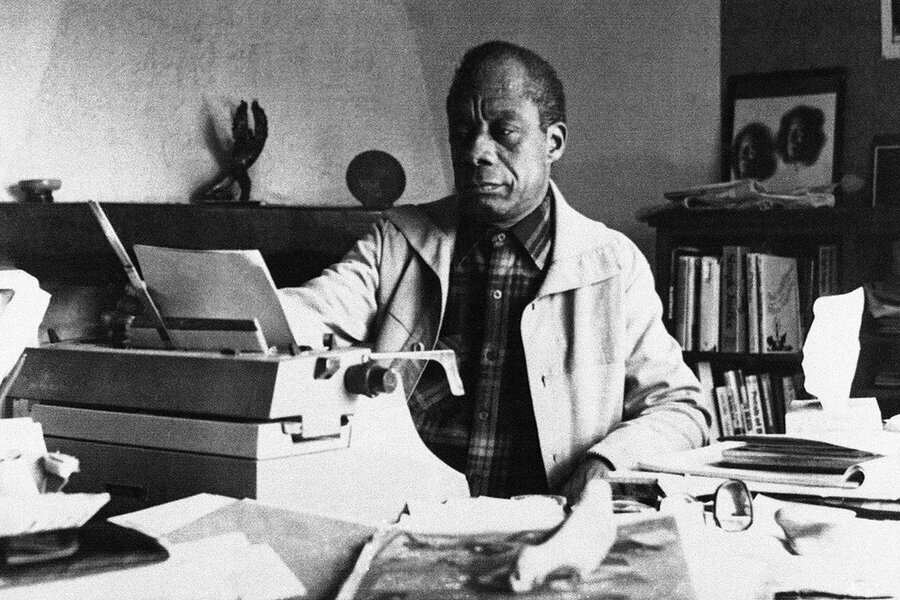Episodes
Sunday Mar 31, 2019
Sunday Mar 31, 2019
This novel (CONFESSIONS OF A CRAP ARTIST) is so good. Prove me wrong. Philip K. Dick is at his best when he is writing about marriage and the strangers who sleep next to us.
Sunday Mar 31, 2019
Episode 301: Equality of Conditions: Democracy in America, Part 1
Sunday Mar 31, 2019
Sunday Mar 31, 2019
In this episode, I start an eight-part series on Alexis de Tocqueville's DEMOCRACY IN AMERICA. What is the importance of the general equality of conditions in the creation of American democracy? What is the future of American democracy when this equality of conditions has been replaced with oligarchy?
Tuesday Mar 26, 2019
Episode 300: Bye bye Jefferson (Jefferson's Letters 1816-1816)
Tuesday Mar 26, 2019
Tuesday Mar 26, 2019
We come to the end of this series on the writings of Thomas Jefferson with the letters written during the last decade of his life. His lack of growth of race is striking, but his commitment to democracy did not seem to waver. This contradiction will forever shape how we look at him.
Tuesday Mar 26, 2019
Tuesday Mar 26, 2019
In this episode we start to look at Philip K. Dick's CONFESSIONS OF A CRAP ARTIST, written in the late 1950s. It was a mainstream novel that explores some interesting themes of family and new religious movements.
Sunday Mar 24, 2019
Sunday Mar 24, 2019
Philip K. Dick has been writing obliquely about Malthus since some of his earliest stories. In the "Pre-Persons" Dick takes on these issues again, and along the way angered the feminists. Is this story just his response to Roe v. Wade or does it have a more significant place in his argument against gerontocracy?
Sunday Mar 24, 2019
Episode 299: Jefferson and Adams Friends Again (Jefferson Letters 1813-1815)
Sunday Mar 24, 2019
Sunday Mar 24, 2019
The highlight of Thomas Jefferson's retirement letters are those he wrote to John Adams. In this episode, we look at some of those and some other important and interesting letters he wrote in 1813, 1814, and 1815.
Wednesday Mar 20, 2019
Episode 298: Jefferson Retired (Jefferson Letters 1807-1812)
Wednesday Mar 20, 2019
Wednesday Mar 20, 2019
In this set of letters, I look at Jefferson's last years in public life and the interests he pursued after retirement. Much of his work in this period involves education, culminating in his work on the University of Virginia.
Wednesday Mar 20, 2019
Wednesday Mar 20, 2019
In this wonderful little story ("A Little Something for Us Tempunauts") Philip K. Dick explores the tedious repeatability of space exploration, both for us and for the explorers. Maybe we can do better if we had a real frontier?
Sunday Mar 17, 2019
Sunday Mar 17, 2019
In this lengthy episode, I take a detailed look at FLOW MY TEARS, THE POLICEMAN SAID by Philip K. Dick. It presents a detailed police state, examines class dynamics in authoritarian societies, and has some of Dick's most touching looks at relationships and the futility of liquid relationships.
Saturday Mar 16, 2019
Episode 297: The Revolution of 1800 (Jefferson's Letters 1800-1806)
Saturday Mar 16, 2019
Saturday Mar 16, 2019
In this selection of the letters of Thomas Jefferson we explore the "Revolution of 1800" and Jefferson's first term as president. The achievements of this period are well known, but more interesting may be his internal thoughts about his presidency.
Saturday Mar 16, 2019
Saturday Mar 16, 2019
In the conclusion of WE CAN BUILD YOU by Philip K. Dick, we find ourselves in a very different novel. After a mental breakdown Louis Rosen is institutionalized and we see one of Dick's best descriptions of the asylum.
Tuesday Mar 12, 2019
Jefferson Unhinged (Thomas Jefferson Letters 1790-1799)
Tuesday Mar 12, 2019
Tuesday Mar 12, 2019
Thomas Jefferson comes back from Paris to become Secretary of State. Fights with everyone. Decides to do it himself and runs for president. Let's watch the rise of the party system in American politics by looking at Jefferson's letters from the 1790s.
Tuesday Mar 12, 2019
Tuesday Mar 12, 2019
Well, they got an Abe Lincoln bot and all was going well, but they lost their designer and engineer. How can our little startup survive against the big corporations without its greatest minds? Find out in part 3 of my review of WE CAN BUILD YOU.
Saturday Mar 09, 2019
Episode 295: Jefferson's Letters from Paris, 1785-1789
Saturday Mar 09, 2019
Saturday Mar 09, 2019
While Jefferson was in Paris he started having sex with Sally Hemmings, commented on the Constitution, and saw the spread of revolution in Paris. We look at one of the most critical periods of Jefferson's life through his letters.
Saturday Mar 09, 2019
Saturday Mar 09, 2019
So they built a Edwin Stanton android, but what can they do with it. And what happens when you fall for your crazy underage co-worker? Find out in part 2 of my review of WE CAN BUILD YOU, by Philip K. Dick
Thursday Mar 07, 2019
Thursday Mar 07, 2019
In this episode I begin my look at WE CAN BUILD YOU. This novel by Philip K. Dick was written in the early 1960s and feels like one of his conventional novels, but it has a sci-fi twist by giving us a small android building business.
Thursday Mar 07, 2019
Episode 294: Jefferson's Revolutionary Letters
Thursday Mar 07, 2019
Thursday Mar 07, 2019
This episode covers Thomas Jefferson's letters written from his youth to the mid-1780s, when he was sent to Paris.

